Text
The risk/reward of just ignoring one sequel's mistakes in the next one
Ghostbusters Afterlife —

Ghostbusters: Frozen Empire —

I've previously written on this blog about the unfortunate legacy of The Force Awakens and how its massive success paved the way for a veritable buttload of legacy sequels that made similar mistakes.
One example I cited was Ghostbusters: Afterlife. Among the things I hated there was the declaration that no ghosts had shown up anywhere for approximately 30 years, effectively negating any EU lore or personal imaginings of interim adventures. Instead, we're made to believe that ghosts ONLY appear when an apocalyptic threat is making them emerge.
This year's direct sequel, Ghostbusters: Frozen Empire, just completely ignores all that. Ghosts can appear anywhere and any time regardless of whether a major threat is coming to somehow spawn them. In fact, we even see the library ghost from the opening of the original 1984 Ghostbusters has apparently just been floating around freely EVER SINCE THEN. She's just stayed in the New York Public Library the whole friggin' time! (Which is kind of ridiculous all by itself, but whatever.)
So that's certainly ONE way to deal with dumb/bad ideas introduced in legacy sequels; just kind of pretend the idea was wrong or that you never said it, and don't bother explaining yourself when you show the opposite to be true. :P I... kind of love that??? But I feel like I probably shouldn't, because they should probably have to justify why they claimed that stuff in the first place.
But can you imagine if the Star Wars sequels pulled this kind of thing?
The Rise of Skywalker certainly does take pains to undo some of The Last Jedi, but it also feels the need to acknowledge what that movie said and did. Like "Oh Rey — it IS true that your parents were nobodies, but your grandpa is still somebody." Imagine instead if The Rise of Skywalker had just treated it like "OF COURSE Luke never thought the Jedi were a mistake, and of course he didn't run away to die! He was on that planet to build a new Jedi Academy, silly! Didn't you notice?" And then they just never explained the discrepancy.
I think I might've loved that, LOL. But like I said... I probably shouldn't. :P
#ghostbusters#legacy sequels#requels#ghostbusters: frozen empire#ghostbusters: afterlife#ghostbusters afterlife#ghostbusters frozen empire#anti-disney star wars#star wars sequel negativity#star wars#star wars negativity
9 notes
·
View notes
Text
I would've loved to see what George Lucas had envisioned for the Star Wars sequels, of course.
From what little we've gleaned courtesy of Mark Hamill interviews, Lucas' own vague mentions, and some references to it in Bob Iger's memoirs, Lucas' treatment for Episode VII focused on Kira, a young woman who goes questing to find her long-missing father — who turns out to be Luke Skywalker, naturally. She discovers that he left his family behind because he could sense a threat reaching into the galaxy that was drawing ever-closer to him. The threat was coming from — and could only be battled from — inside of the Force somehow (???), and his own strength with the Force made him a beacon that was luring it directly towards him, endangering the people closest to him. So he's isolated himself in order to frantically study how to somehow enter and control the Force itself, preparing for some kind of coming "inner battle."
Which all sounds super fucking weird, but at least it would have been something new.
10 notes
·
View notes
Text
youtube
14 notes
·
View notes
Photo
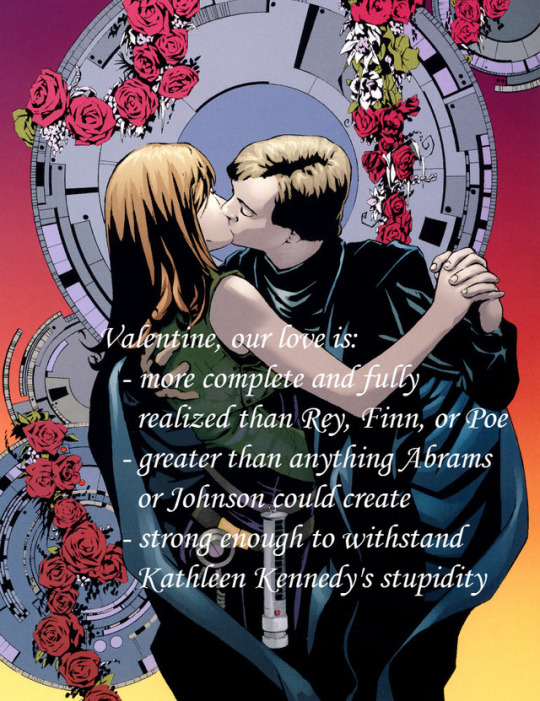
#star wars eu#mara jade skywalker#valentine's day#star wars valentine#anti-disney star wars#star wars negativity#luke skywalker#anti sw sequels
148 notes
·
View notes
Photo
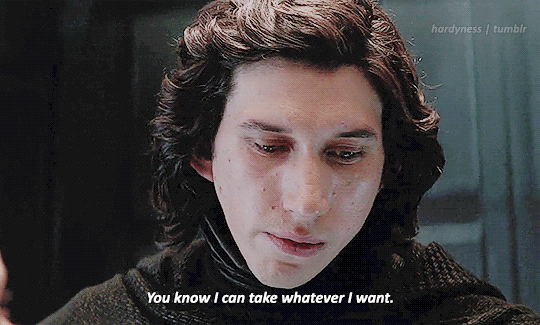
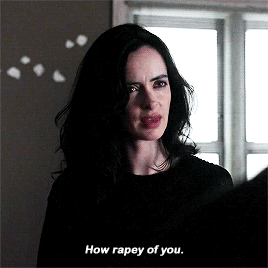
Happy Valentine’s Day (◡ ‿ ◡ ✿)
2K notes
·
View notes
Text
"Why The Last Jedi Isn't Just Bad - It's Toxic" by M. Krasava
DISCLAIMER: This editorial was originally published on Scavenger's Holocron, a sadly-now-defunct Star Wars news site. I feel like it's a tragedy to have it deleted from the Internet and only accessible to dedicated parties who know about it via the Wayback Machine, so I'm reposting it here as a form of greater preservation/availability.
Currently being regarded as the most controversial Star Wars film to date, fans of the popular franchise seem to have settled into two groups: this is either the best Star Wars film ever made, or the worst. Cinematically speaking, the movie has stunning visuals and a great cast of actors, but that’s not the problem.
The problem is that while The Last Jedi is being branded as the most feminist Star Wars film to date, its “feminism” seems like a cheap marketing ploy to appeal to a wiser audience and downplays some of the key problems within the film itself: it’s built on a foundation of sexism, misogyny, and racism. In other words, if you’re anything other than a white male, this film isn’t made for you.
And director Rian Johnson hasn’t exactly been shy about his opinion regarding the film’s white male villain, Kylo Ren. Rian told Empire Magazine that, “We can all relate to Kylo: to that anger of being in the turmoil of adolescence and figuring out who he’s going to be as a man.”
The only problem is that we can’t. Despite Rian’s insistence that this film is about the “transition from adolescence into adulthood,” Kylo Ren is already a well-established adult with a history of bad choices. We know from the canon Star Wars novel Bloodline, written by Claudia Gray, that Kylo Ren was at least 23 years old when he destroyed Luke’s Academy. At this point, he’s already an adult capable of making his own choices.
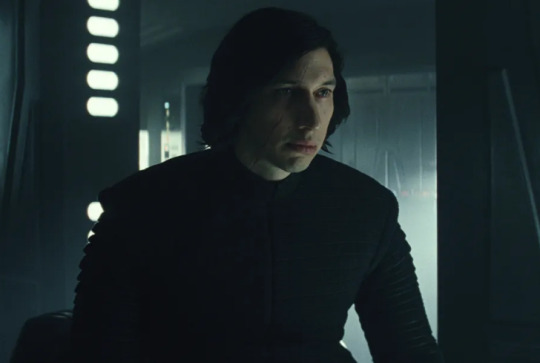
The film reveals that the final push towards the “dark side” was when Ben Solo awoke to see Luke standing over him with his lightsaber while he was sleeping. Without considering the possibility of a miscommunication, Ben Solo brought the roof down on the last Jedi, and then systemically went about converting or eliminating the rest of the students in Luke’s school before burning it to the ground. From there it can be presumed that he officially took on the role of Snoke’s apprentice, dubbing himself Kylo Ren as he joined the ranks of the First Order.
The problem is that it doesn’t matter. There’s nothing relateable about being a white adult male who decides to sign up with a Nazi organization and the very premise that we should try to have sympathy for such a character is chilling, especially when you consider that he murdered Han Solo not more than a week prior in film time.
(PUTTING THE REST UNDER A CUT)
But there’s another element to Kylo Ren that makes him harder to relate to. He comes from a place of privilege in society. Ben Solo was born to two war heroes, and while those might be big shoes to fill, there’s nothing that would indicate that Han and Leia were terrible parents to their son. In The Force Awakens, Leia admits that she sent Ben to train with Luke because she feared Snoke’s growing influence on her son (turns out, she had a right to be concerned). In Chuck Wendig’s canon novel, Empire’s End, from the Star Wars: Aftermath series, we see Han excited, if not a little daunted, about the possibility of becoming a father.
In other words, there’s nothing relateable when you think about a wealthy white male growing up sure of his place in the world and deciding to leave it all behind to join a fascist organization.
Compounding on this, there is someone who is relateable: Finn. Finn was not born from a place of privilege. If anything, we still know very little about Finn’s origins aside from the fact that he was abducted from his parents and raised to be a Stormtrooper. Despite years of conditioning and being ranked as the top cadet in his class, Finn was able to maintain his sense of self and when it came down to his first battle, he decided not to shoot and kill an unarmed villager.
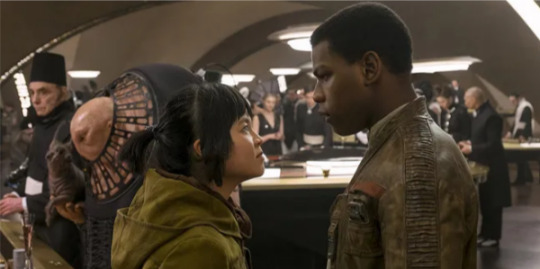
This is the character that most people should be able to relate to. Finn is a character that isn’t sure of his place in the world. He grew up with the First Order and left everything that he knew behind him in order to try to do what he thought was right. Although he initially planned to seek a quick exit from the conflict at Maz’s castle, he didn’t hesitate to rejoin the struggle when he discovered that Rey was in danger. Finn spent most of his time in The Force Awakens running away from something – the First Order, from Jakku, from delivering BB-8 to the Resistance, but we see his progression throughout the movie to the point where he risks his life for Rey and helps the Resistance destroy the Starkiller base. At this point, Finn has rightfully earned his status as a hero.
Until The Last Jedi where Finn is again painted as selfish and cowardly, and the film does not shy away from this fact. Initially branded as a traitor by Rose when he tries to get the beacon as far away as possible to prevent Rey from falling into a trap, he is consistently belittled by Rose throughout the film. She consistently calls him cowardly and self-centered, and Finn’s characterization seems to shift in order to fit this description. When Finn is explaining his plan on hyperspace tracking to Poe, he is excited and confident: he can do this. When he gets to Canto Bight, he suddenly regresses, becoming immature and distracted by the glitz and glamour all around him. Finn knows what’s on the line. Rey is on the line. Poe is on the line. The Resistance has less than 24 hours, and yet he suddenly becomes bumbling and distracted.
This becomes Finn’s character throughout the rest of the film. Brash, impulsive, and worse, being frequently portrayed as the butt of everyone’s jokes. When we first see Finn, he is wandering about the halls of the Resistance in nothing but a bacta suit, as if Finn has suddenly forgotten how to care for himself. The film plays into the stereotypes that many people have about black male individuals. Instead of being treated as the hero of the Resistance, Finn is relegated to a comedic side role based on slapstick humor and unfunny comedy that ultimately doesn’t contribute anything to the plot.
In other words, Finn’s side plot reflects the film’s stance of diversity: we’ll wave it in your face for a few minutes before we wave it aside to make way for the two white protagonists. It’s a bold statement, but not untrue. Rian Johnson first joked that it would be “funny” to leave Finn in a coma for the entire film: “We did at some point joke that it would be great to just have him be in a coma for the whole movie and keep cutting back to him.” He explains that each of these cuts back to Finn would have him uttering some nonsense in his unconscious state, and at no point in the entire run time of the movie would the former Stormtrooper wake up.

When John Boyega first accepted the role of Finn, JJ Abrams told him that he was going to be the new star of Star Wars. Rian Johnson blatantly admitted that it would be “funny” to simply delegate the black lead to the sidelines, where he doesn’t have more than a few scenes of incoherent babbling to serve as comic relief.
Not to mention, it’s Rose who ultimately has to teach Finn about the seedy belly of Canto Bight and how it operates: through slave labor. Another character shouldn’t have to explain to Finn, of all characters, the tortures and ills of slavery. After all, that’s the only life Finn’s known, taken as his family and raised in a life of servitude as a Stormtrooper to the First Order.
The underlying racism in The Last Jedi does not, unfortunately, stop with Finn’s character. We know a lot more about Poe Dameron’s character from the popular Poe Dameron comic series that highlights Poe’s adventures with Black Squadron before they find Lor San Tekka.
In fact, Poe’s arc is highlighted by its racism, as Poe’s character is reduced to a mere stereotype of his ethnicity. From the Before the Awakening, piloting flight logs, and comic series, we have a complete picture of who Poe is as a character. He tells L’ulo, “I’m the best. But you’re the best too” which highlights who he is as a person. He is a gentle soul that sees the best in people, trusting Finn not only to help him escape, but to lower the shields on the Starkiller Base when he said he could. Poe is a genuine nice guy who would give the shirt, er, jacket off their back to help a stranger.

And we see absolutely none of this in The Last Jedi.
Poe is described as rash, dangerous, and aggressive by Vice Admiral Holdo, played by veteran actress Laura Dern. She’s dismissive of him, and while a part of it does play into more harmful stereotypes that I’ll get into later, in this instance, it’s hard not to. In the opening first scene, Poe is prepared to let everyone, everyone die just to take out a First Order Dreadnought. Even though successful, Poe seems more focused on the success of his mission than the countless deaths of his fellow Resistance fighters.
And that is not who Poe Dameron is. To say so makes a complete mockery of a fantastic character whose character has already been set and esteemed by fans. Changing his character to comply with stereotypes in order to try to advance the plot isn’t “moral ambiguity” or “challenging the character” – it’s just bad writing.

In short, Poe becomes aggressive, dangerous and hotheaded, all to fulfill the stereotypical role that the narrative wants him to play. His character attitudes are changed in order to fulfill a plot device, and that’s the conflict set up between himself and Vice Admiral Holdo.
This conflict is disappointing. It focuses on a female leader putting an aggressive, chauvinistic male in his place. It’s supposed to be empowering, but it’s not, especially when you have to have one character act so differently in order to get to that point. The problem is that the kind of feminism this movie is preaching is white feminism, which is dangerous in and of itself.
But what does white feminism mean in this case? Vice Admiral Holdo, and even Rose, both undermine and belittle Finn and Poe, treating them like children. This concept of infantalization upholds racist stereotypes of black and Latino men being both incompetent and irrational. In Poe’s case, it works to also uplift the alleged moral superiority of white women over people of color. And it’s not feminism.
It’s just disgusting.
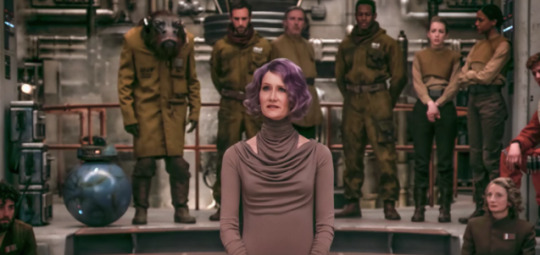
Holdo is held up as someone that people in the Resistance are supposed to respect as a leader, and yet she refuses to tell the very people she’s leading what their plan is, citing Poe’s earlier reckless actions as an excuse. Even according to the Navy’s Leadership Principles, keeping your people informed is the second principle on the list. In other words? It’s pretty important. Vice Admiral Holdo’s refusal to do so is driven by petty motives, and while Poe is painted as ridiculous and childish the entire movie, he’s actually proven right when the First Order does the very thing he was afraid they would do.
One of the “lessons” from Poe’s story line is you should always blindly trust authority figures even when they provide no valid reason for doing so, and this is an extremely dangerous and topic example to set, especially in today’s society when people of color are so often made targets of police brutality, which again feeds back into the movie’s underlying theme of systematic racism.
Holdo herself seeks redemption from her mistakes by turning around and ramming her ship through theirs – an admittedly cool move, although it would be cooler had we not seen Admiral Raddus suggest the idea of plowing through a ship no more than a year earlier – and dies so that Leia can explain to Poe that Holdo was a good leader (without really stating how) because she was more concerned with fulfilling the mission without getting credit for it.
The problem with this? It means that Holdo had to die in order for Poe to “understand” what it meant to be a leader. This doesn’t work for two reasons. For one, Poe is a decorated Commander who had already served as a leader in the Republic Navy before joining the Resistance. Painting him as a cocky flyboy with a chip on his shoulder just doesn’t work when it goes against everything we’ve been told about his character. The “lesson” Poe was supposed to learn was one he already knew.
The second problem is that it meant that Holdo had to die in order for Poe to learn this lesson. In other words, we’re back to that age-old trope: a woman had to die in order to advance the plot/characterization of a male character.
And that’s where we get to our final topic: sexism. For a movie that preaches itself as so overtly feminist, it is rich with sexist undertones that are immediately apparent on the surface. Most of these are notably in the interactions between Rey and Kylo Ren, but there’s another character that I wanted to touch upon first. Rose Tico.
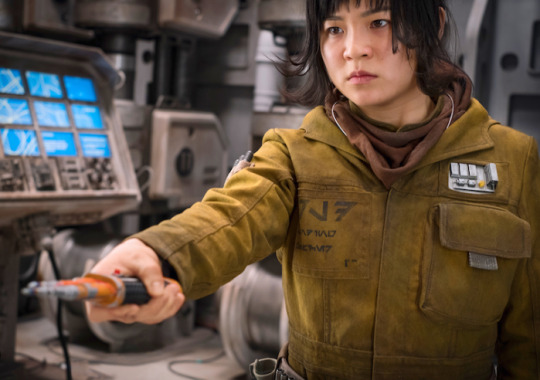
Despite Kelly Marie Tran’s boundless enthusiasm for her role, Rose Tico is ultimately underwhelming as a character. Despite mourning the death of her sister, her ultimate presence in the film seemed to be reduced to a girl with a bad crush on Finn.
I’ve already touched upon how poorly Rose treats Finn, but Rose herself seems to have gotten the short end of the stick in terms of the plot. Her character exists only to serve Rian’s image that your heroes aren’t what they seem, tazing Finn when she sees him trying to escape. From then on, Rose’s status seems to be downgraded to “Finn’s crush” as seen in the description of this deleted scene:
Originally, the film spent some more time clarifying the dynamic between Rey and Finn, and further setting up Rose’s crush on the Resistance “hero.” Rose chastises Finn for “pining for Rey,” which Finn quickly denies, claiming that he was “raised to fight” and that he finally found something to fight for in his friend, Rey. “Whatever,” responds Rose with a hint of jealousy.
Rose’s constant nagging of Finn and being catty about Rey enforces a negative female stereotype that has no business in a Hollywood blockbuster that claims to be catered to young girls, especially when it seems that Rose’s role has been reduced to working the love triangle dynamic between Finn and Rey. This seems like it could only lead to a destructive end for the character, especially considering how she attempts to save Finn’s life by almost sacrificing her own at the end of the film. Rose presents us once again with the trope that a female character must sacrifice herself in order to advance the plot of the male character, in this case, to prove her love for him. It’s a frustrating trope, made all the more exhausting when you consider what her role might be in the next film.

If you focus on the look Rey gives Finn putting a blanket over the unconscious Rose, it sets up tension for the next film: assuming Rey and Rose engage in competition for Finn’s attention, putting the two girls at odds with one another.
Because if the sexism in this movie wasn’t blatant enough, that’s just what Star Wars needs: two girls fighting over a guy. While frustrating to watch, it’s also extremely degrading to both characters and reduces both of their arcs into nothing more than instruments to direct the story of a male character.
Hopefully JJ will take the next episode in a different direction, but the damage that has already occurred in this film cannot be understated. There is, unfortunately, a lot of ground to cover regarding Rey’s story, so I’m going to start with the most visually striking one: Rey’s costume.
In The Last Jedi, Rey adopts what has been dubbed her “Jedi Training” outfit, trading out her three signature buns for a simpler hairstyle and trading out her light Jedi garb for a bit of a darker color. It’s a way for Rey to separate herself from the girl we saw crying desperately over her parent’s retreating ship on Jakku, keeping the same appearance a decade later in the hopes that they would come back to recognize her.
Many who speculated that Rey would undergo this physical transition after she discovered the true origin of her parents and worked to free herself of that disappointment found themselves disappointed. Rey didn’t change her clothes and her hair after she learned about her parentage from Kylo Ren, she learned about it after.
Despite being wet from the rain, another reason for this change is that she was shipping herself off in a box to see Kylo Ren, prompting those who want them to be romantically involved to start citing the Snow White parallels. It’s not hard to believe that the reason for this change was to make Rey appear more feminine. With her hair down, she looks more like a girl and less like the hardened warrior who had to fend for herself back on Jakku.

But wait, wouldn’t that mean that Rey’s entire role in the movie basically focused on developing Kylo Ren as a character? It does, and you wouldn’t be wrong to think that way. Even during Rey’s training sessions with Luke, the conversation is always geared back to Kylo Ren in some way, whether it’s Luke talking about his past or Rey assuring Luke that she won’t end up like Kylo. Either way, we hear Kylo’s name spoken more times between them than we actually hear anything about the Jedi or the things that Luke learned about the Force on his travels (say, Pillio, perhaps?)
It becomes clear early on that despite Rian Johnson saying that the film isn’t about what the fans want, that certain scenes were added in to appeal to a certain demographic. For example, Adam Driver’s uncomfortable shirtless scene?
Rian himself says that the scene had a “specific purpose” of creating an increasing feeling of “uncomfortable intimacy.” In other words, Kylo Ren’s shirtless scene is basically synonymous with a dick pic: no one asked for it, but there it is, one of the most subtle forms of sexual harassment. Think about this another way: if Rey’s character was really a boy, would the shirtless scene still be present? Or necessary?
Hint: it’s not.
The fact that Rey’s character only seems to exist to play a role in Kylo’s story is concerning, considering that she is touted as the protagonist of the sequel trilogy. Even though she witnessed him murder Han Solo no more than a few days prior, she becomes emotionally intimate with him pretty quickly, opening up to him about the strange experiences she had in the “dark place” beneath the island.
And therein lies the problem. When they touched hands, Snoke gave her a vision of Kylo Ren turning back to the light side to compel her to rush off to the Supremacy in the hopes that she could turn Kylo Ren back to the light and turn the tide of the war.
There’s only one problem with that.
It’s not her problem.
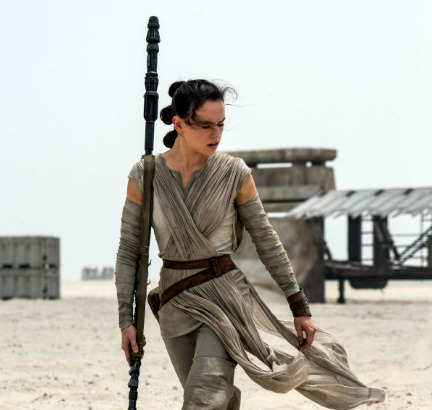
Rey was a civilian. As Kylo Ren himself told her, “You have no place in this story.” She has no part in the conflict between the First Order and the Resistance, and yet she was swept up in it all the same. It shouldn’t be necessary for her to rush off and turn the tide of the war, and while it fits with the Star Wars theme of how one person can make a difference, the trope that a woman must rush off and sacrifice herself in order to progress a man’s character and offer him redemption has been a long-running frustrating trope. If Rey wants to help the Resistance, that’s her choice, but it shouldn’t be necessary to rush off and try to save the person who kidnapped and abused her.
It’s one of the things that makes any sort of Kylo Ren and Rey team-up so off-putting. In The Force Awakens, he kidnaps her and invades her mind in order to try to find the location of the map. After she escapes, he confronts her in the forest, throwing her into a tree several feet up in the air in a move that could have potentially killed her. Then she wakes up just in time to watch him slice through Finn in a move that could have killed him.
Oh, and did I forget to mention how she watched him murder a defenseless Han Solo right before her eyes only moments before? The man who, as Kylo himself taunted, presented a father figure that she never had?
In other words, Rey has absolutely no reason to trust Kylo Ren. She has no reason to even want him to get redemption. For all of Rian’s talk about how he wanted to keep this film “morally grey,” trying to make a genocidal murderer relateable, or even redeemable, was not a step in the right direction. Wouldn’t it have been more compelling to watch Rey wrestle with the ramifications of eliminating Kylo Ren once and for all? Instead of trying to find redemption for the dark side, wouldn’t it have been far more interesting to explore a situation in which Rey realizes that good people must sometimes do bad things for an overall good to result?
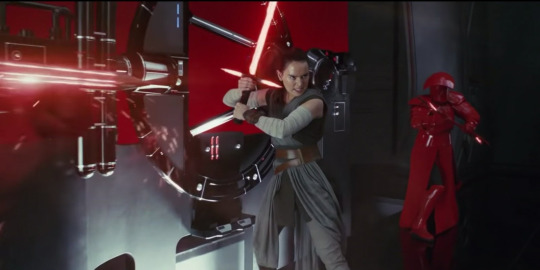
Perhaps, but that’s not the film we got. Instead we got a team-up between Kylo Ren and Rey where, moments after they work together, their alliance is quickly severed. Rey asks Kylo to call off the attack that is sure to eliminate the Resistance, including Finn. Kylo, however, refuses and tells her to move on and join him in ruling. He tells her, “You come from nothing. You’re nothing. But not to me.”
Fortunately Rey grabs the lightsaber and rejects his offer, and the final scene of her closing the Millennium Falcon doors on him seems to confirm that she has severed her connection for good. The problem? The damage has already been done.
Rian Johnson has already set up the Kylo Ren and Rey dynamic to be potentially romantic, between the shirtless scene, the hand touching scene, to be filled with an uncomfortable kind of sexual tension between the girl that declared to Maz, “I don’t want a part of any of this” and the man that murdered his father.
As troubling as that notion is, it does get worse. Kylo Ren tells Rey, “You come from nothing. You are nothing. But not to me.”
The problem is that Kylo Ren’s frequent gaslighting and emotional manipulation throughout the two films reaches its climax: he has discarded Snoke and wants to use the powerful, yet naive Rey, to further his own power. Still, the sexual if not romantic implications are there, pushed along by a group of shippers that call themselves “Reylos,” who desperately seek for Rey to redeem Kylo through, well, you get the idea.

There are several problems with this. One of the first ones is the fact that Kylo Ren is 32 years old, whereas Rey is only 19. While many are quick to claim that age is just a number, Rey is emotionally immature, having been isolated on Jakku for most of her life. There is absolutely no good reason to try to push her into any sort of relationship with someone who is so destructive, especially when the sole reason for doing so is to help Kylo Ren find redemption.
The line, “You’re nothing…but not to me” is a quote that unfortunately most women have heard far too often. It’s an emotional manipulation tactic in order to try to isolate a woman from her friends and family until she only relies on her abuser for support, and this is exactly what Kylo Ren is trying to do here. With Luke unwilling to teach her, Kylo wants Rey to rely on him, and solely him, so that he can use her power and manipulate her to further his own goals (which is to lead the First Order to…conquer the galaxy? It’s not quite clear.)
It’s a frightening message, especially when you think about who this movie is supposedly marketed to. Think about how many children dressed up as Rey for Halloween. How do we explain to girls that the man who killed Han Solo, the man who emotionally manipulated her and tried to use her just to validate himself, is the person that she should ultimately fall in love with? It paints a dangerous picture that girls internalize before they have enough experience to make their own decisions regarding their own relationships.
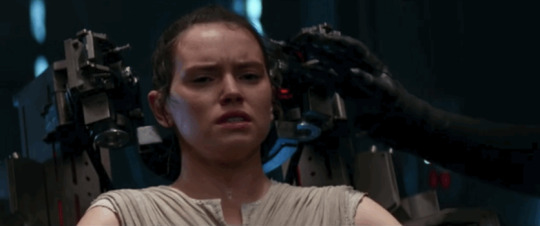
Remember Edward Cullen’s creepy manipulation in Twilight? Apparently that’s crept into Star Wars as well.
And this gets to the heart of the overall problem. The Last Jedi is ultimately soaked in sexism, misogyny and racism, and yet Kathleen Kennedy and Bob Iger widely praised the film before its release. How can Kathleen Kennedy, who said that she was proud to have a feminist icon in Rey, be willing to reduce Rey’s entire story to “the love interest?” If the executives and storygroup approved such blatant racism and actively worked to rewrite characters in order to fit their stereotypical narrative, what hope do we have that the next trilogy will be better, especially when they gave Rian Johnson full control over its content?
Rian himself believes that Darth Vader was worse than Kylo Ren, and while that is probably a conversation as controversial as the movie itself, Rian still wholeheartedly believes that despite what happened in The Last Jedi, that Kylo Ren can be redeemed. It shows that the storyline that JJ Abrams set up has been reduced to simply furthering the narrative of the white villain, and the rest of the characters are simply players in his story, which is why they exist as nothing more than stereotypes in Rian Johnson’s version of Star Wars.
And that’s the disappointment. While The Force Awakens received criticism for being too similar to its predecessor, A New Hope, JJ did set up some interesting and mysterious characters. While Captain Phasma’s role was ultimately underwhelming, fans were assured that she would have a much bigger role to play in Rian Johnson’s world.
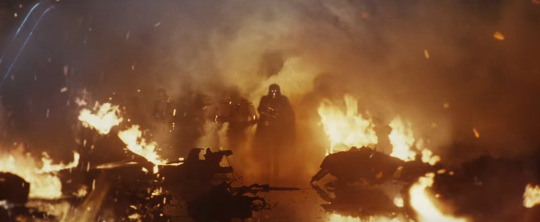
Unfortunately, we all know how that turned out.
Phasma’s quick dismissal wasn’t the only disappointment. Snoke was killed off without any satisfying explanation to who he was or even what he wanted the First Order to do. The Knights of Ren, which were mentioned in The Force Awakens and played a role in Rey’s vision, disappeared from the narrative entirely, instead being replaced by Rian’s Praetorian Guards.
For many, Luke Skywalker’s return was the biggest disappointment. Mark has made no secret in recent weeks citing how he didn’t agree with Rian Johnson’s vision of Luke and how he wished George Lucas had directed the sequel trilogy instead, a mere three days before The Last Jedi hit theatres. It fits into Rian Johnson’s grim version of reality: our heroes can be defeated, and idolizing legends is ultimately unsettling and disappointing when faced with reality.
But by disappearing into the Force, did Luke not himself become a legend, the very thing that Rian seems to chide against? The film’s “message” seems to give audiences such mixed signals, it’s not surprising that audiences claim that the film seemed better after a second viewing: basic elements of the plot just doesn’t make sense, like how the First Order has suddenly developed hyperspace tracking despite the film only taking place a few days after the events of The Force Awakens.
There are other plot holes that point out the flaws in logic in the story: where did Rey learn to swim on Jakku? How can bombers drop bombs in space when there’s no gravity for the bombs to fall? Since space exists in three dimensions, why didn’t the First Order just have a ship drop out into hyperspace in front of the Resistance Star Cruiser and blow it to bits? And why was General Hux, a serious, straight-faced villain in The Force Awakens, who ordered the destruction of the Hosnian System, delegated to a comedic side role who’s only function was to serve as a cheap laugh and be the butt of an awkward your mom joke? Instead of using the antagonism between Kylo Ren and General Hux to show the crumbling of the First Order and how the small band of Resistance heroes we’re left with at the end of the movie might stand a chance against them, it seems that the First Order’s army, which was flowing with Nazi imagery in The Force Awakens has just been reduced to campy slapstick humor.
Despite these obvious problems, the most glaring ones still remain in the fact that Star Wars is a film that claims to market itself to the people it exploits and ultimately rejects. It’s no wonder that merchandise and ticket sales have dropped when the movie is back to focusing on a white male lead, like so many other before it. Kylo Ren tells Rey that you have no part in this story, that she doesn’t belong – something that minorities, women, and the LGBTQ+ community have been hearing their whole lives.
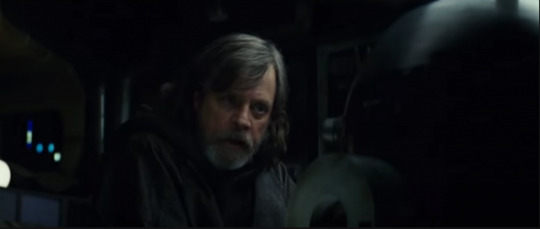
But if this movie isn’t made for these people, then why does Disney keep trying to insist that it is? Most people who have been critical of the film have been met with the chorus of, “You’re just upset that you didn’t get what you wanted” as if it’s somehow wrong to expect more from what you receive. The story was set up so that we would get answers. How someone as powerful as Snoke managed to manipulate Kylo Ren from the womb and grow the First Order from the seeds of the Empire, Phasma’s increased involvement, and especially the question of Rey’s parentage, has been dangled in front of us like a carrot on a stick for the past two years, and it’s ultimately unsatisfying to see all those threads being clipped off and brushed aside with a, “Oh! It didn’t even matter!”
If it didn’t matter, then why feel the need to keep up the secrecy and suspense for two years, when the final product is ultimately disappointing? (Point not withstanding, Kylo Ren tells Rey that Snoke showed him that her parents were buried in a pauper’s grave on Jakku. Why her parents would actually return to Jakku, or whether Snoke was actually telling the truth, is a matter that JJ has yet to resolve.)
It’s not wrong to be a critical consumer of the media that we consume. It’s not wrong to say that we deserve something better. Minorities and women can and should demand to be treated with more respect than they were shown in this film, and the overwhelming amount of racism and misogyny in this film is something that most avid fans of the film have not provided an answer for.
People who claim that The Last Jedi is a good movie, while at the same time acknowledging how deeply misogynistic and racist it is, are contributing to the larger problem we have as a society. It’s saying, “I know it’s racist and misogynistic, but it entertained me, so I’m okay with it.”
It might just be fiction. It might just be a story. But all media we consume influences us, subconsciously or not, in ways that we may not even be aware of. Star Wars may not be real. These characters may not be real.
But it still affects how you feel, and that seems pretty real to me.
#anti-tlj#anti-the last jedi#anti-disney star wars#star wars negativity#star wars sequel negativity#star wars#why the last jedi isn't just bad - it's toxic#last jedi toxic#the last jedi is toxic#tlj toxic#tlj is toxic#scavenger's holocron
18 notes
·
View notes
Note
Hi.
I was having dinner with my sister yesterday when we started talking about Star Wars and I mentioned that ANH was no.4 in the OT.
Then, my sister, who is a professor of film, told me that one of her students informed her that ANH was now no. 5 because the series Obi-Wan Kenobi is now no.4 in the saga.
I couldn't believe that one.
...........by that insane logic, A New Hope would be Episode 12. Because it comes after The Phantom Menace, Attack of the Clones, The Clone Wars movie, The Clone Wars animated series, Revenge of the Sith, The Bad Batch, Solo: A Star Wars Story, Obi-Wan Kenobi, Andor, Rebels, and Rogue One: A Star Wars Story!
...or maybe it's Episode friggin' 13 if you count Tartakovsky's Clone Wars. :P
4 notes
·
View notes
Text

Friendly reminder that the Saga was made complete on May 19, 2005.
32 notes
·
View notes
Text
As much as people give a lot of flak to Indiana Jones and the Kingdom of the Crystal Skull, I've always been grateful that the long-awaited franchise return didn't fall into any of the above-numbered traps. Probably because it predated The Force Awakens. And although people tend to blame Lucas for that movie's failings, I've previously indicated why I feel they lie more in Spielberg's court. In summation: Indy's stories and characterization and writing owe so much more to Lucas than Spielberg. As far as Indy goes, Spielberg should mostly be credited for providing strong direction and creating intense action sequences, and not so much the story stuff.
ANYWAY.
You might wonder why I'm mentioning all this while simultaneously reblogging the the above post. And all while we're just a few weeks from Indiana Jones and the Dial of Destiny hitting theaters around the globe.
Answer: Because the premiere of the movie at Cannes revealed that Dial of Destiny commits three of the four sins numbered above.
Yeah.
It's like that. :(
The unfortunate legacy of The Force Awakens and the Star Wars sequels
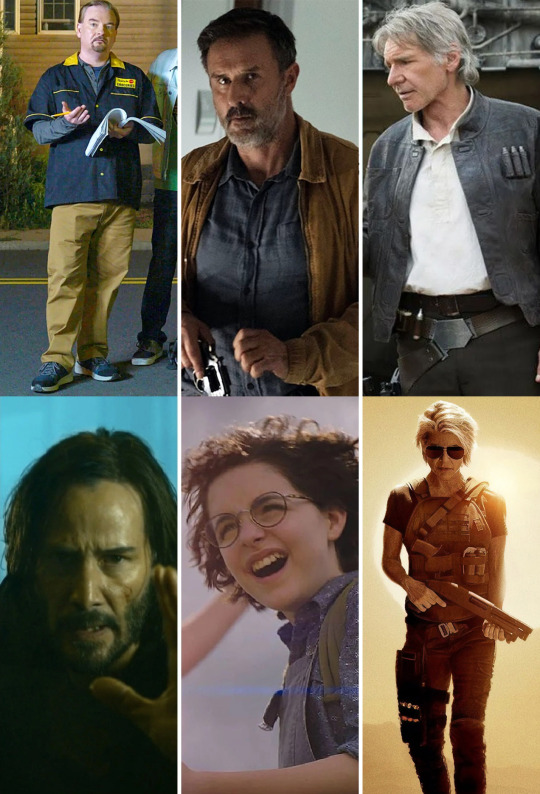
The fact that The Force Awakens made so much money in 2015 has been a lead weight around Hollywood’s neck for the better part of a decade now.
We’re *STILL* seeing decades-late sequels that imitate the Star Wars sequels’ WORST elements.
Specifically:
Make sure your classic character(s) has/have been totally miserable and/or failures since they were last seen. Yes, even though it’s been at LEAST a decade, they should’ve been suffering the whole fucking time.
Erase at least one character’s growth (or sometimes even their base character traits) entirely, resetting them back where they started in their first film (or, alternatively, rendering them unrecognizable).
Kill off some of those legacy characters ASAP to ensure they have no hope of ever achieving the happy ending you once promised/implied.
Work in obvious repeats of prior movies’ events and scenes so the audience can be like “Oooh, I remember when they said/did that in the other movies,” resulting in them feeling like they’re in on something and are therefore validated.
In fact… maybe just copy/paste the entire plot from an earlier entry? No surprises means MAXIMUM NOSTALGIA.
These things were all present in The Force Awakens and even repeated for The Last Jedi. But they wound up just being pioneers of a shitty trend.
Some examples:
Terminator: Dark Fate
Ghostbusters Afterlife
The Matrix Resurrections
Scream (2022)
Clerks III
The degree of the severity of these things varies, at least. Maybe not every single legacy character has been completely miserable since we last saw them; it might be only some or even just one of them. I’ll also grant Ghostbusters Afterlife that killing off Egon was the only reasonable choice available to them. Situations like these can help soften the blow… and for those reasons, I don’t hate ALL of the movies I just listed. There’s even one or two I kinda like!
But make no mistake: All of the above lessons/tropes are still shitty ones. The legacy of the Star Wars sequels (TFA most specifically) is still a damning one. I honestly believe that ALL the movies I cited would all be better off if they hadn’t taken ANY cues from TFA’s template.
168 notes
·
View notes
Text
Yeah, it’s May the Fifth now, but you can still talk about Star Wars.
Because the Fourth will be with you.
Always.
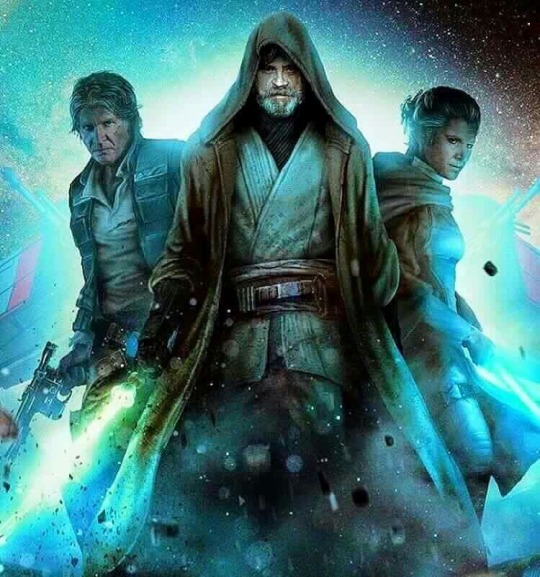
#hi I'm reblogging my stupid joke from last year#star wars day#may the fourth#may the fourth be with you#star wars
48 notes
·
View notes
Text
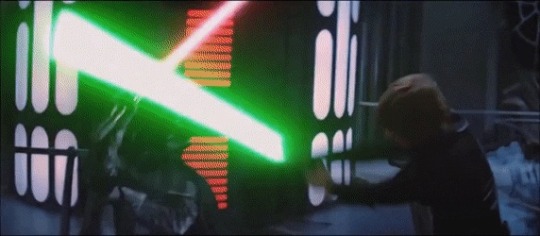

I just saw someone on Twitter deadass claim that the moment up top is exactly the same as the moment below it,
"This is Luke acting out of fear," they say. "Both are completely in character," they tell me.
To which *I* say:
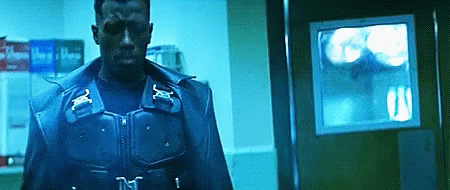
Are we really gonna do this?
Are we REALLY gonna compare:
Greenhorn Jedi Luke, after being tempted and manipulated by the Emperor for some time, learning that everyone he cares about was walking into a trap of the Emperor's design, and then hearing Vader — who has murdered thousands, if not MILLIONS of people — threaten him with making his sister turn to the darkness...
To Elder Jedi Master Luke, decades later, having trained numerous students for some time, sensing that this nephew is being turned to darkness, going to confront him privately at night — and then straight igniting his fuckin' weapon on him while he sleeps?

NO.
Fucking NO.
Get the FUCK outta here with that.
#anti-disney star wars#star wars negativity#star wars#anti-tlj#anti-star wars sequels#anti-sw sequels#star wars gifs#gifs
16 notes
·
View notes
Text
The unfortunate legacy of The Force Awakens and the Star Wars sequels

The fact that The Force Awakens made so much money in 2015 has been a lead weight around Hollywood's neck for the better part of a decade now.
We're *STILL* seeing decades-late sequels that imitate the Star Wars sequels' WORST elements.
Specifically:
Make sure your classic character(s) has/have been totally miserable and/or failures since they were last seen. Yes, even though it’s been at LEAST a decade, they should’ve been suffering the whole fucking time.
Erase at least one character's growth (or sometimes even their base character traits) entirely, resetting them back where they started in their first film (or, alternatively, rendering them unrecognizable).
Kill off some of those legacy characters ASAP to ensure they have no hope of ever achieving the happy ending you once promised/implied.
Work in obvious repeats of prior movies’ events and scenes so the audience can be like “Oooh, I remember when they said/did that in the other movies,” resulting in them feeling like they’re in on something and are therefore validated.
In fact... maybe just copy/paste the entire plot from an earlier entry? No surprises means MAXIMUM NOSTALGIA.
These things were all present in The Force Awakens and even repeated for The Last Jedi. But they wound up just being pioneers of a shitty trend.
Some examples:
Terminator: Dark Fate
Ghostbusters Afterlife
The Matrix Resurrections
Scream (2022)
Clerks III
The degree of the severity of these things varies, at least. Maybe not every single legacy character has been completely miserable since we last saw them; it might be only some or even just one of them. I’ll also grant Ghostbusters Afterlife that killing off Egon was the only reasonable choice available to them. Situations like these can help soften the blow... and for those reasons, I don’t hate ALL of the movies I just listed. There’s even one or two I kinda like!
But make no mistake: All of the above lessons/tropes are still shitty ones. The legacy of the Star Wars sequels (TFA most specifically) is still a damning one. I honestly believe that ALL the movies I cited would all be better off if they hadn’t taken ANY cues from TFA’s template.
#legacy sequels#anti-tfa#anti-tlj#anti-disney star wars#star wars negativity#star wars#the matrix resurrections#ghostbusters afterlife#scream 5#scream 2022#clerks iii#terminator dark fate#star wars sequels#anti-star wars sequels
168 notes
·
View notes
Text
me whenenever I remember that disney took legacy character luke 'when given an ultimatum between being a proper jedi and loving my friends, I chose my friends.' 'love brought my father back to the light in the final moments of his life' 'was successful not because I followed the code but bc I followed my heart' skywalker and turned him into a disillusioned and hardened old man who even mark hamill did not recognize, who turned his back on everyone he loved and made the same mistakes as the jedi before him. luke skywalker would not leave the galaxy in a time of crisis (genocidal maniac kylo) unless he was trapped/forced to, would not turn his back on rey even for a moment, and would not force a baby (grogu) to choose between being a jedi and having the love of his father (mando)

6K notes
·
View notes
Video
......it’s unfortunate that I have to do this, but I feel the need to add a major DISCLAIMER to this post now, all these years later.
The long version — His video essays on The Last Jedi gained the creator (a Brit YouTuber who goes by “MauLer”) a level of success he had never seen before on the platform. That success made him start doing more and more of this kind of thing — railing on movies in long form — and, because he started doing this kind of thing with The Last Jedi, he gained a lot of followers and fans from... undesirable corners as he continued to make these sorts of things. The worst of the sequel-haters came out in droves for him and starting feeding him their additional critiques and justifications, participating in long podcasts with him, etc. They’ve GREATLY influenced the direction of his critiques and output. To the point that, now? He’s just another one of them.
When this video series came out, I was so goddamn grateful to see an incisive critique of The Last Jedi that didn’t bitch about Rey being a powerful woman, didn’t complain about having a diverse cast at the center of Star Wars, and basically wasn’t created by some conservative douchebag who only wants to watch media about the mighty White Man. Sadly, in the years since these videos? That’s exactly what the creator has turned into. Just one more useless fucker.
TL;DR — Since creating this video series, the creator of this critique has slid off into the abyss of being just another diversity-hating conservative prick on the Internet.

BOTTOM LINE: I still legitimately recommend this series of three videos wholeheartedly. However, please do not take my endorsement of this specific series of critiques as an endorsement of the rest of the channel or ‘MauLer’ as a whole.
youtube
youtube
youtube
This is a point-by-point, moment-by-moment takedown of The Last Jedi that is incredibly thoughtful and well-handled. It cites lines of dialogue, the logic of why it doesn’t work, and for the most part, I agree with almost everything in it.
Be warned: This is five hours long. But it’s a good five hours if you need to feel that someone else sees problems in every goddamn scene the way you do.
#siiiiigh#depressing#anti-tlj#anti-the last jedi#anti-disney star wars#star wars negativity#star wars#you really do either die a hero or live long enough to become the villain I guess#I didn't even get into how his critiques of movies have gotten much dumber and pedantic over time to justify why his videos are so long
308 notes
·
View notes
Photo

Rian Johnson and his production team:

#anti-tlj#anti-the last jedi#anti-star wars sequels#anti-disney star wars#star wars#the last jedi#:(#I'll die sad about it
22 notes
·
View notes
Text
The Mehness of Obi-Wan
Now that I’ve seen the whole thing, the “Obi-Wan Kenobi” series was... well, at times it was fine. And at other times it was very irritating. Overall, I’d say “mild miss.”
It would’ve benefitted a LOT from being cut down to about two hours in length. Maybe two and a half. So: A movie. That could’ve been cool.
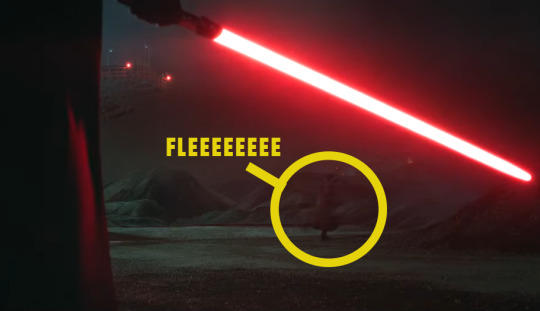
Sundry Thoughts Under the Cut:
- When they first announced that Vader would be in this and Christensen would be returning, I figured there was only ONE reason to bring Obi-Wan and Vader back together before their fateful meeting in Episode IV: You can finally explain that moment in Return of the Jedi when Vader tells Luke that “Obi-Wan once thought as you do.” In other words, you tell the story of Obi-Wan trying to save Vader’s soul and failing. It’s been the most infamous question mark hanging over the continuity of the OT since 2005. But guess what? This Disney+ series makes absolutely no attempt to address it. Which boggles my mind.
- You’ve probably heard by now that the real stars of this show are Ewan MacGregor as Obi-Wan and Moses Ingram as the new character of Reva, aka “Third Sister” in the Inquisition. And I can’t fault the performances on these two whatsoever. They do amazing work throughout. Both of them are clearly invested in these characters and completely bringing their best to the table. It’s just that the material isn’t always worthy of them.
- Obi-Wan spends half the series as a total fuck-up until the moment when he instantly, inexplicably isn’t anymore.
Remember how, at the end of Revenge of the Sith, Yoda was going to tell Obi-Wan how to commune with Qui-Gon, and Yoda said Qui-Gon would then train him while he was in hiding? Well, when this series opens, we quickly learn that Obi-Wan hasn’t managed to speak to Qui-Gon even ONE time. He hasn’t seen him or heard him at all. And he also hasn’t trained whatsoever. For ten. fucking. years.
This subsequently leads into him spending three and a half episodes just completely sucking. He doesn’t know how to successfully disguise himself, he doesn’t know how to keep up a cover story, he doesn’t know how to fight with a lightsaber or even use the force anymore. He’s total rubbish! Except, weirdly, when it comes to guns? He actually kinda kicks ass with a blaster now — you know, the weapon Obi-Wan always considered to be “uncivilized”? No idea when he started training heavily on those things, but ok.
ANYWAY, this all reaches Peak Embarrassment when Obi-Wan confronts Vader for the first time. He draws his lightsaber, but then he gets scared and opts to simply run away. Or he TRIES to run away. Like a methodical slasher villain, Vader doesn’t even have to run to magically catch up. Eventually, Obi-Wan has no choice but to very poorly attempt to block Vader’s lightsaber attack. Without explaining the entire climax, suffice it to say that ol’ Ben gets REAMED.
But then the fourth episode comes along. Near the start of the episode, we see Obi-Wan trying to pull a small object towards himself with the Force, but he can’t do it. He can only bring it like halfway across the table with difficulty. But then his mission to sneak into an underwater facility begins, and... he just instantly gets his mojo back! He can use his lightsaber like a pro. He can deflect blaster bolts back at stormtroopers. He can perform mind tricks. It’s not explained at all; he just suddenly is great at everything again. And he continues to be completely badass at all things for the rest of the series without anyone ever trying to explain the shift. What the fuck is that?!
- Sadly, Reva isn’t all that well-written for a bunch of reasons. Moses Ingram is bringing her A-game, and they let her down. She’s got a cool backstory and awesome underlying motivations, yet her actions often make no sense.
In the third episode, she somehow easily senses the exact building where Obi-Wan is hiding amidst an entire town - when even Vader himself didn’t sense it or find it, just walked right past it! And then she instantly figures out that this same building contains a secret door that leads to an “underground railroad”-esque hiding spot for Jedi - even though numerous imperials have been through here and seen nothing at all, and there are no people hidden within (so she can’t be sensing any life forms).
In the fifth episode, she finally is given the opportunity to do what she’s been pursuing for most of her life. All of her careful planning has led to this. So she naturally waits until the worst moment and takes action as stupidly as possible. .... Maybe the pressure of having decades of her life lead up to a single moment in time just got the better of her?
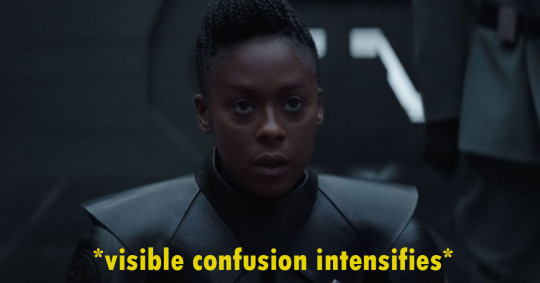
The worst instance of all this, though, are the CRAZY leaps of logic she takes in the very last episode. Based on some broken-up audio she hears at the tail end of the fifth episode, she somehow figures out things that she should have no way of knowing. But of course, she’s completely right. And she then pursues an objective that makes no sense and is completely out of character for who she’s established to be. Until at the end of the episode, she suddenly stops and... I guess remembers what her motivation actually fucking was? God, it is INFURIATING. If she ever appears in this franchise again, I hope they can try to give us some sort of retroactive justification for her actions in that last ep.
- The show would be a lot shorter if it didn’t spend so much time spinning its wheels. Sometimes they just repeat plot beats and sequences in a new setting, presumably because they figure the setting will be enough to make it seem different.
In Episode 2, Obi-Wan must rescue little Leia from captivity and then evade a bunch of stormtroopers hunting them while they make their way to a ship to escape. In Episode 4, Obi-Wan must rescue little Leia from captivity and then evade a bunch of stormtroopers hunting them while they make their way to a ship to escape.
In Episode 5, Obi-Wan and the nascent Rebellion are cornered by the Empire, and Obi-Wan determines that he must appear to give himself up in order to serve as distraction that will let the Rebels get away. Ah! but then, in Episode 6, Obi-Wan and the nascent Rebellion are cornered by the Empire, and Obi-Wan determines that he must appear to give himself up in order to serve as a distraction that will let the Rebels get away.
- Speaking of the actors, Hayden Christensen does amazing work in the Vader suit. I know it’s basically just a form of mime, but his movements look so powerful and threatening throughout. He also gets to reprise pre-burn Anakin in some flashback images courtesy of some digital de-aging, so that was cool. And on the topic of Anakin/Vader, I can’t believe how outstanding James Earl Jones still sounds at age 91?! I saw some rumors online that he might’ve been digitally enhanced beyond just the usual Vader reverb, but... either way, holy shit.
- One of the best moments in the show is probably Ewan’s reaction when he hears that Anakin/Vader is actually still alive. But I must admit that I was confused that Obi-Wan would be stunned by this information. I mean... he sees that Palpatine was calling Anakin “Lord Vader” even before their Mustafar duel. Did he forget that name, or did he somehow just never hear about the existence of a “Darth Vader” terrorizing the damn galaxy?
- I wasn’t too sure about Vivien Lyra Blair as Leia when the series started, but she establishes that she’s up to it fairly early on. I was ultimately quite happy and impressed with her.
- Lola is an adorable design, and also VERY marketable. But if we’re going to be seeing droids hanging around the Organa residence, shouldn’t we have seen R2 and/or Threepio... ?
- I definitely did not expect Owen and Beru to get some pretty badass scenes? And actually do some fighting? Unexpected, but the writers and fight choreographers made it make sense. Although both Owen and Beru are willing and capable of standing up for themselves, the show doesn’t try to make them secret warriors or anything. They’re still just a couple of people trying to defend a farm for their family’s sake.
- I can’t argue much with the final battle between Obi-Wan and Darth Vader. It’s cool to see. It would’ve been much more resonant if they had used “Battle of the Heroes” or “Duel of the Fates” in the score somewhere, though.
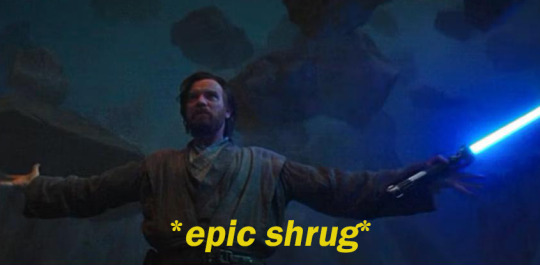
- Before the final battle, Obi-Wan says this is it - this is where one of them will have to die for the other to live. And yet! When Obi-Wan kicks Vader’s ass, he just looks him in the eye and... leaves. He leaves this former friend of his, who he saw casually killing innocent civilians one by one back in Episode 3, to continue his reign of terror. Obi-Wan, you absolute fool. You’re now basically responsible for everyone Vader kills for the next ten years! You know that, right?! You stood there and watched Vader walk down a line of innocent civilians’ houses as he killed them one by one in an attempt to draw you out. You KNOW what this dickcheese is capable of! Christ... if the writers didn’t have any logical excuse for why this would happen, they should’ve rethought the whole goddamn sequence.
12 notes
·
View notes
Text
I think all of the above comments are compelling. @eric-coldfire has effectively spoken to why the Inquisitors were created from a meta perspective and has further given voice to how it feels like they kind of diminish Vader’s old role. But I mean... the Disney Era doing things worse than they were already done in the previous EU? Are we honestly even surprised about that anymore?
I like @eldritchgentleman’s take on the fact that Sith intentionally create an environment ripe with the potential for betrayal. It explains a lot about why any Sith would ever take on an apprentice in the first place, right? I mean, they have to know that the apprentice will be driven to betray them, so why not just horde all the power for yourself? Because as you said, they thrive in such an environment.
But my favorite remarks on the topic have been these comments from @sirzooelite:
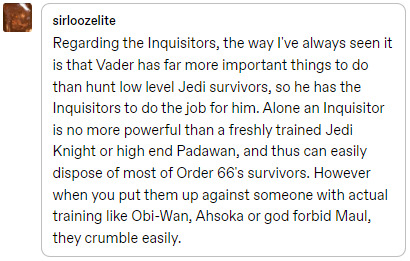
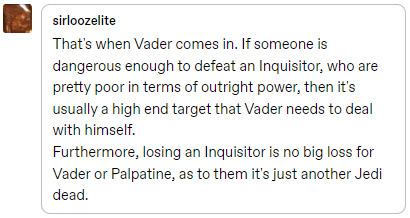
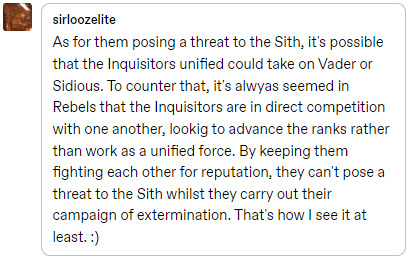
This speaks to a lot of my concerns in my #1 and #2 points. In this scenario, you could easily believe that the Inquisitors were liquidated and done away with when low-level Jedi were believed to have been largely reaped. (I might question whether Ahsoka would really be seen as a high-level threat given that she didn’t get very far in her education as an apprentice. But she was Vader’s personal apprentice, so there’s at least that aspect of it.). It also keeps Vader an active Jedi hunter and obvious threat while still serving the aforementioned metatextual need for low-level lightsaber-wielders on “Rebels”. And these comments ALSO dovetail nicely with what @eldritchgentleman said about how Sith function.
So yeah, I can buy that. I appreciate it.
This just leaves my concern #3: Why would you march around speechifying to the public about how the Jedi are actually noble and good and compassionate, thereby announcing “We Are the Bad Guys” to civilians?
It’s a dumb tactic, but maybe the explanation is simpler than I realized. The Grand Inquisitor, as a former Jedi, obviously would know this to be the truth. He knows what he’s doing is evil. And maybe he just doesn’t particularly care if a bunch of desert-dwelling Outer Rim citizens know about it. Y’know — “I have bigger concerns than helping the fucking PR team” or something.
In which I don’t understand the Inquisitors or why/how they operate
I’m giving the Obi-Wan Disney+ series a chance.
I was optimistic that it wouldn’t include any references to the sequels that I deeply want to forget. And I’m certainly happy to see Disney embracing the prequels now, after years of shitting the bed so hard that many fans went from disdaining the prequels to openly longing for their quality.
But of course, they’ve already included something introduced in the Disney sequel mythology. (The ability to forcibly pull information from someone’s mind is, to me, a bit much? It just seems OP, even for Force-wielders [who are already pretty damn OP]. But at least it appeared to be highly difficult when Kylo Ren was doing it in The Force Awakens. In comparison, Reva apparently does this sort of thing five times on her morning jog each day.) And I have other questions….
If anyone reading this out there watched “Star Wars: Rebels” or followed any other Disney-era Expanded Universe materials, perhaps you can help me out.
What’s the deal with the Inquisitors?

He’s evil and he knows it. (ayy)
1) There are only ever two Sith at any given time, right? And the Sith want to exterminate the Jedi, obviously. But in their quest to do so, they’re… hiring former Jedi? Creating additional Force users/lightsaber wielders who are neither Sith nor Jedi?? I can’t understand the logic here. This seems like a Very Bad Idea for Palpy and Vader. They’re A) creating more people who might potentially attempt to usurp their power (as Sith are notorious for killing their own masters) and B) they’re creating more people who can effect a decent uprising against them if they ever turned to the light side. Are there really so many escaped Jedi that we needed to create an entire division that puts the leadership at risk like this?
2) Obviously, the Empire would have to know that Obi-Wan and Yoda were never killed during the purge, right? In other words, the extermination was never completed. If you really thought this division necessary to create, you presumably wouldn’t dissolve it before the job was finished. So why don’t the Inquisitors appear to exist by the time of Episode IV/ANH? Or are they just off-screen somewhere? Do we know?
3) In Episode III, Palpatine sells the public the Big Lie that the Jedi were power-hungry and led an insurrection against the standing government, which is why they have to be taken out. But the Inquisitors in “Obi-Wan” are walking around openly talking of the Jedi having compassion that they can’t resist, having a desire to help people everywhere they go - y’know, all these obviously positive traits. So: Did the Empire completely drop the pretense of the Jedi being the bad guys somewhere between Episode III and Episode IV, I guess. That seems… ill-advised, but maybe they just didn’t want to keep having to lie all the time?
22 notes
·
View notes